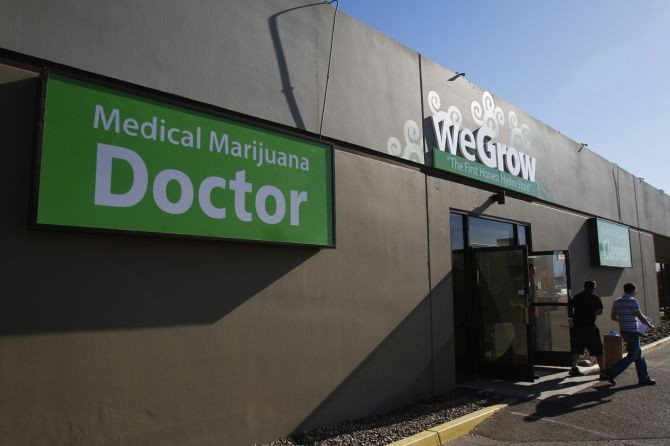Medical Marijuana Stores not Linked to Neighborhood Crime Rates

Stores that sell marijuana for medical use might not be associated with crime rates in the neighborhood, a new study says.
For the study, the researchers looked at crime records of 95 different areas of Sacramento in 2009. They analyzed data for crimes that were violent or property related.
The researchers found that areas where unemployment rate was high had more number of violent crimes whereas there was no causal link was found between the number of medical marijuana dispensaries and crime rates.
In 2009, a report by California Police Chiefs Association had said that stores that sell marijuana are at risk for violent crimes.
"Because they are repositories of valuable marijuana crops and large amounts of cash, several operators of dispensaries have been attacked and murdered by armed robbers both at their storefronts and homes," the report said, "and such places have been regularly burglarized. Drug dealing, sales to minors, loitering, heavy vehicle and foot traffic in retail areas, increased noise, and robberies of customers just outside dispensaries are also common ancillary byproducts of their operations."
But the new study says that this might not always be true.
"The reality is, we haven't had any evidence to support those claims," said Nancy J. Kepple, lead researcher of the study.
Then there are studies that supported the idea that medical marijuana increases marijuana use.
"States that legalized medical marijuana had higher rates of marijuana use. Future research needs to examine whether the association is causal, or is due to an underlying common cause, such as community norms supportive of the legalization of medical marijuana and of marijuana use," write Magdalena Cerdá in the journal Drug and Alcohol Dependence. They had studied the relationship between state level approval of marijuana and its use.
"This study is a good first step. But it was not designed to address the bigger picture of how these dispensaries might be affecting neighborhoods," said Kepple. The researchers say that more research will be required to get a complete picture of how medical marijuana dispensaries in a neighborhood affect the crime rates.
Another study published in the journal Drug and Alcohol Dependence says that there is limited causal link between medical marijuana laws and its use by adolescents.
Recently New York judge admitted using marijuana to relieve pain from pancreatic cancer and urged the state governor to legalize medical marijuana in New York.
Last week Connecticut became the 17th state in the U.S. to legalize marijuana for medical use, Reuters reported.



























